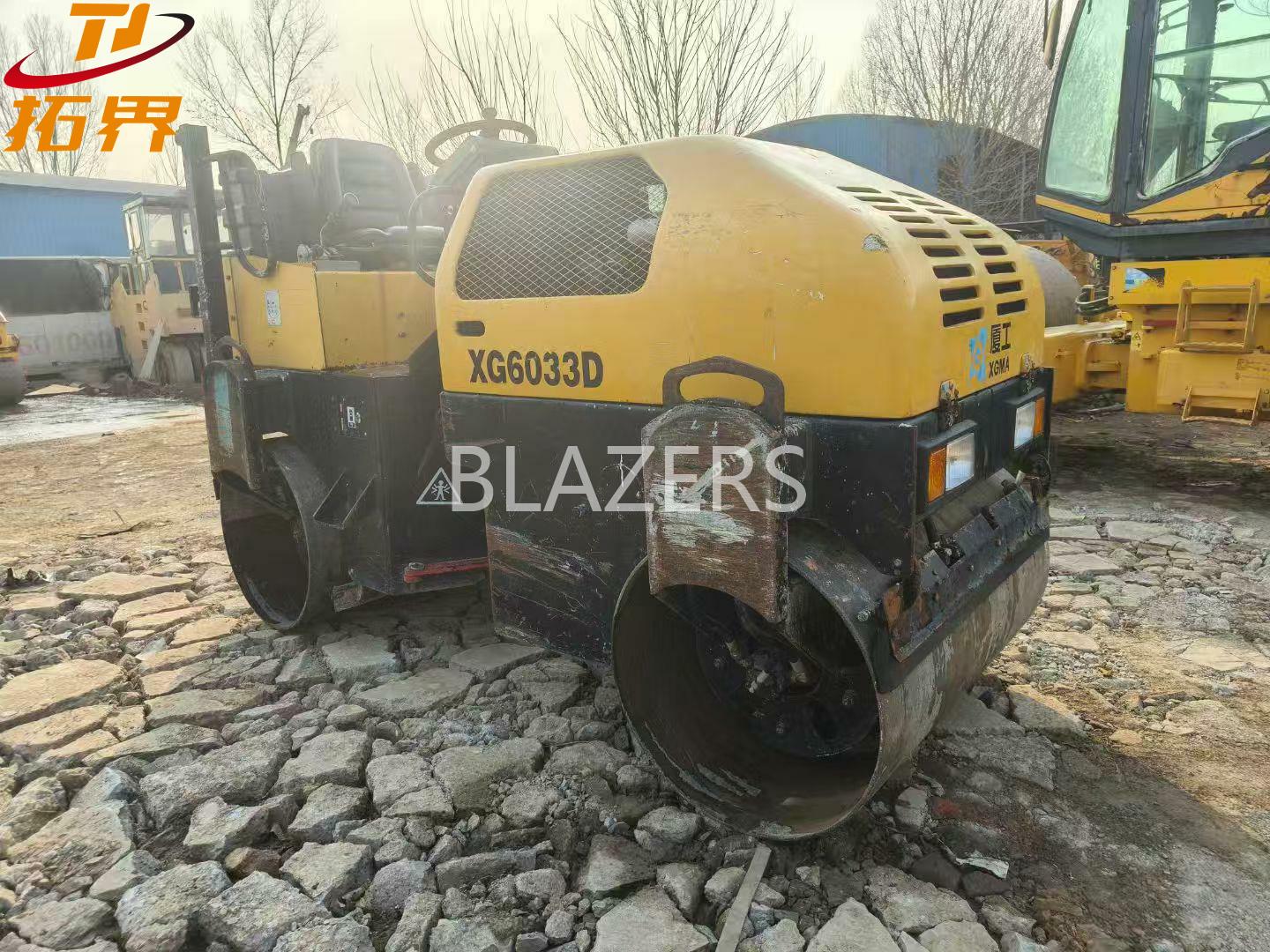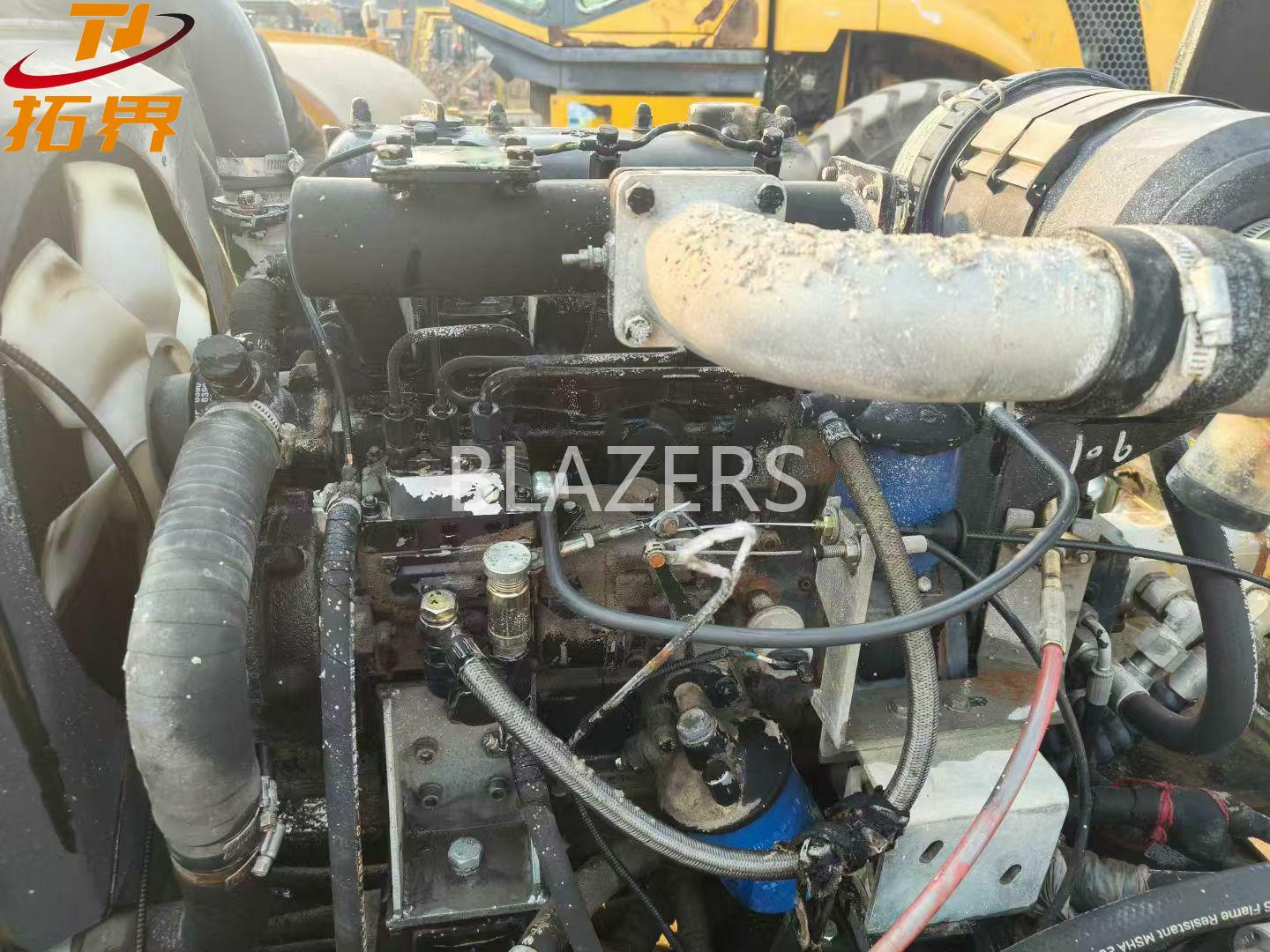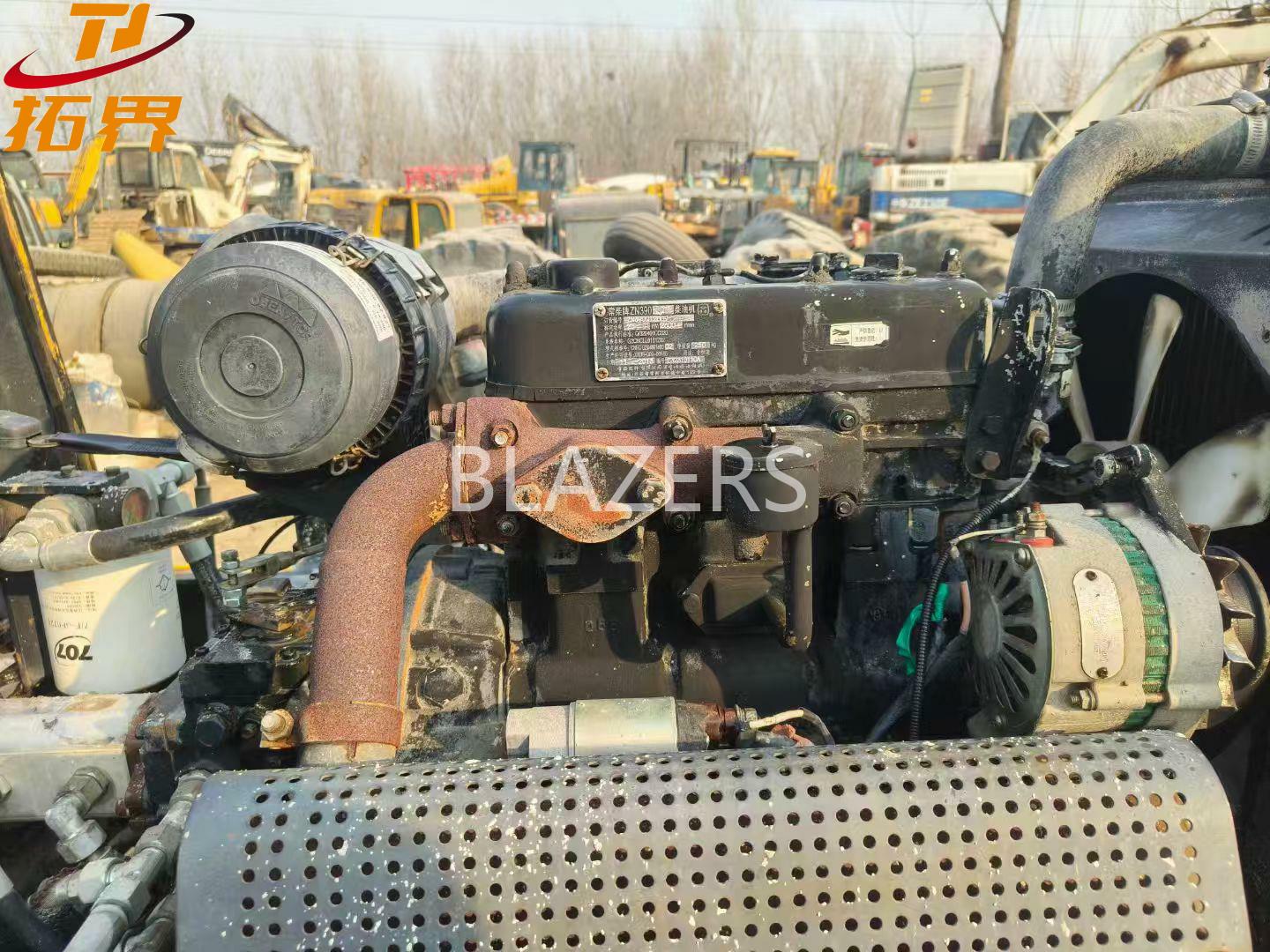The 3-ton compacting machine is specially designed for precise compaction in narrow spaces. It is suitable for use in pedestrian walkways, small gardens, pipeline trench backfilling, and edge and corner compaction of construction pits. It can flexibly pass through and effectively address the compaction blind areas that large equipment cannot reach.
About high-quality 3-ton XGMA XG6033D road roller
Narrate
This XG6033D small road roller, manufactured in 2017, still maintains excellent operating condition to this day. Its low-speed diesel engine responds sensitively to cold start, runs smoothly at idle without abnormal vibrations, and has better fuel consumption performance than similar models. The hydraulic vibration system is well-sealed, and the single steel wheel has abundant excitation force without any leakage risks. The compact body frame has no structural damage, and the original blue paint retention rate exceeds 60%. The articulated steering mechanism is flexible and precise. The dual-drive system demonstrates excellent control performance in narrow lanes, and the dashboard in the driver's cab is clear and reliable, capable of meeting the requirements of detailed engineering projects such as municipal trench backfilling and residential road compaction.

Choosing us means you get not just a piece of equipment, but a commitment that can stand the test of time. Behind the deliberately erased usage traces may lie the load-bearing structures with potential fracture risks; while the overly shiny interior decoration might be diverting your attention from the aging wiring. We would rather exchange the rough texture of the original vehicle condition for your peace of mind, rather than short-term glossiness that sacrifices the future of the equipment.

High-quality 3-ton XGMA XG6033D road roller Specificaion
Model: XG6033D (Mechanical single-drum vibratory roller)
Operating weight: 3.2 tons (Drum distribution mass: 2.1 tons)
Dimensions: L×W×H=3120×1180×2200mm
Wheelbase: 1600mm
Engine: Yuchai 4F20TC (Turbocharged)
Rated power: 24kW @ 2200rpm
Peak torque: 96N·m @ 1800rpm
Fuel tank capacity: 38L
Compaction width: 1180mm
Gradeability: ≥30%
Turning radius: Inner 2.1m / Outer 3.7m
Braking system: Shoe brake + Emergency parking

Daily Maintenance Checklist for Road Roller
1. Check Fluid Levels & Fuel
Inspect engine oil, hydraulic oil, transmission oil, and coolant levels (using dipstick or sight glass); fuel tank level. In hot weather (like current summer), coolant inspection is particularly critical to prevent engine overheating and shutdown.
2. Inspect Filters & Air Intake System
Check the cleanliness of air filter, fuel filter, and hydraulic oil filter; inspect air intake system for blockages. Lightly tap the air filter to remove dust (replace if severely dirty); ensure the filter element is undamaged. This step prevents contaminants from entering the engine, reducing 80% of early wear risk. At dusty construction sites (e.g., roadwork), daily air filter cleaning significantly enhances equipment efficiency.
3. Inspect Ground Contact Components & Brakes
Check tire/steel wheel pressure and wear (using tire pressure gauge); brake fluid level and braking performance (test by pedal depression); tightness of steel wheel or tire bolts. Daily inspections identify potential issues (e.g., loose bolts), preventing downtime repair costs.
4. Clean Machine & Check Fasteners
Remove mud, asphalt residue, and water stains from the roller’s surface; inspect critical fasteners (e.g., engine mounts, roller connection bolts). Clean with a soft brush or low-pressure water jet to avoid damaging electrical components. Post-cleaning, a tidy appearance improves heat dissipation. During rainy seasons, cleaning prevents corrosion, extending equipment life by 5+ years.
5. Operational Test
Start the equipment; check dashboard indicators (e.g., oil pressure, battery voltage); listen for abnormal noises/vibrations; test steering and compaction functions. Limit runtime to 2–3 minutes; stop immediately for troubleshooting if warning lights activate. Daily tests enable early fault detection (e.g., hydraulic system noise), reducing 30% of unexpected repair costs.